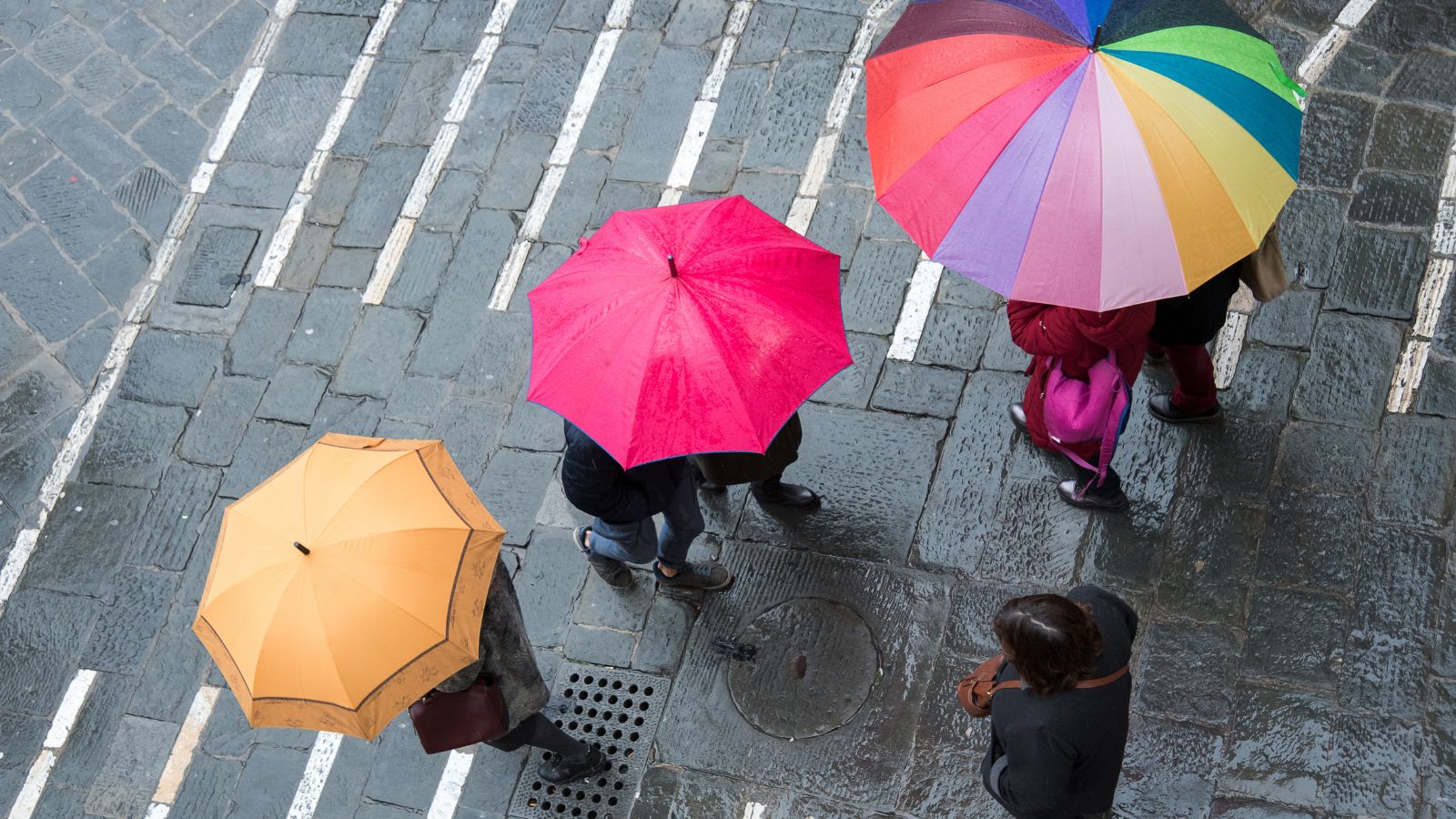Language is always changing, and while some words become popular and widely used, others quietly fade away. These forgotten words once had a place in everyday conversation but are now rarely heard.
Flapdoodle

Once upon a time, if someone was talking nonsense, you might have called it “flapdoodle.” This quirky term was a fun way to point out that someone was being silly or speaking without making sense, whereas nowadays, we’re more likely to say someone is talking rubbish or nonsense.
Bumbershoot

Imagine walking down the street with your “bumbershoot” in hand, and if you’re picturing some unusual object, don’t worry—you’re not alone! “Bumbershoot” was actually an old-fashioned word for an umbrella, and while we now just say “umbrella,” there’s something delightful about the old-fashioned charm of “bumbershoot.”
Lollygag

We all know someone who likes to waste time, right? Well, in the past, we might have said they were “lollygagging,” as this fun word was used to describe someone who was dawdling or being lazy, and it might make you smile to think of someone lollygagging around, but now we just call it procrastination.
Tomfoolery

“Tomfoolery” is one of those words that sounds as fun as it means, and it was used to describe silly, mischievous behaviour—things you might do with your friends just for laughs. While we still enjoy being silly, we’ve moved on from using this playful word.
Fuddy-duddy

If someone was old-fashioned or overly conservative, they might have been called a “fuddy-duddy.” This term was often used in a playful or teasing way, but it was all in good fun; today, we might call someone old-school or stuck in their ways, but “fuddy-duddy” had a certain charm that made the teasing feel less harsh.
Gallivant

Back in the day, to “gallivant” meant to wander around, often in search of fun or pleasure, and it was used to describe someone who was off on an adventure or just enjoying themselves, perhaps a bit aimlessly. While we might now say someone is out “having a good time” or “roaming around,” the word “gallivant” added a sense of carefree joy.
Scallywag

“Scallywag” was a playful term for a rascal or someone who was up to no good in a mischievous, but not harmful, way. It was often used for kids or cheeky adults who liked to cause a little bit of trouble.
Hoosegow

“Hoosegow” was once a popular slang term in the US for jail, but it’s faded from use over the years, and while it wasn’t as common in the UK, it was a fun and quirky way to refer to being locked up. Nowadays, we just say “jail” or “prison,” but wouldn’t it be fun to bring back the term “hoosegow” for a bit of variety?
Cripes

“Cripes!” was an expression of surprise or frustration, similar to saying “Oh no!” or “Good grief!” today. It was a mild exclamation, used when something went wrong or caught you off guard, and while we still have plenty of ways to express surprise, “cripes” seems to have fallen out of fashion.
Balderdash

If someone was talking nonsense, you might have called it “balderdash” in the past. This word was used to dismiss ridiculous or foolish statements, much like we use “nonsense” or “rubbish” today. Though it’s mostly disappeared, it could add a touch of flair to modern conversations.
Zounds

“Zounds!” was once an expression of surprise or shock, kind of like saying “Wow!” or “Good heavens!” today; it’s an old exclamation that you might associate with Shakespearean plays or historical novels, but it was once a regular part of everyday speech. It’s no longer common, sadly.
Cocksure

“Cocksure” was a term used to describe someone who was overly confident, maybe even a bit arrogant, and while we might now say someone is “overconfident” or “full of themselves,” “cocksure” had a certain boldness to it. It was often used when someone was sure of something but didn’t necessarily have reason to be so certain.
Hootenanny

Once a fun word used to describe an informal gathering, especially one with music and dancing, “Hootenanny” brings to mind lively folk festivals or casual, fun get-togethers. Nowadays, we’d probably just call it a “party” or “gathering,” but “hootenanny” has a sense of fun and spontaneity that makes it stand out.
Snollygoster

A “snollygoster” was a clever, possibly unscrupulous person, particularly in politics. It was often used to describe someone who was willing to do whatever it took to get ahead, without much concern for morals; today, we might just call them a politician or use terms like “opportunist.”
Moxie

If someone had “moxie,” they had courage, energy, or determination—essentially, they had guts. While we might say someone is “bold” or “tenacious” today, “moxie” was a more playful way to describe that same quality—and we could use a little more moxie in our vocabulary.
Gadzooks

“Gadzooks!” was another old-fashioned exclamation, used to express surprise or astonishment, and it’s a word that feels like it belongs in a period drama or an old novel, but it was once part of everyday language. While we now say things like “Oh my!” or “Wow,” there’s something particularly charming about “Gadzooks!”
Codswallop

When someone was talking complete nonsense, you might have called it “codswallop.” It was a stronger version of “rubbish” or “nonsense,” used to emphasise just how ridiculous the statement was. Although it’s rare to hear now, it has a certain punch to it that makes it stand out from the alternatives.
Dudgeon

If someone was in a bad mood or feeling offended, they might have been said to be “in high dudgeon,” and this phrase was often used to describe someone who was feeling huffy or indignant about something. Nowadays, we’d probably just say someone is “upset” or “annoyed,” but “dudgeon” added a touch of drama to the situation.

